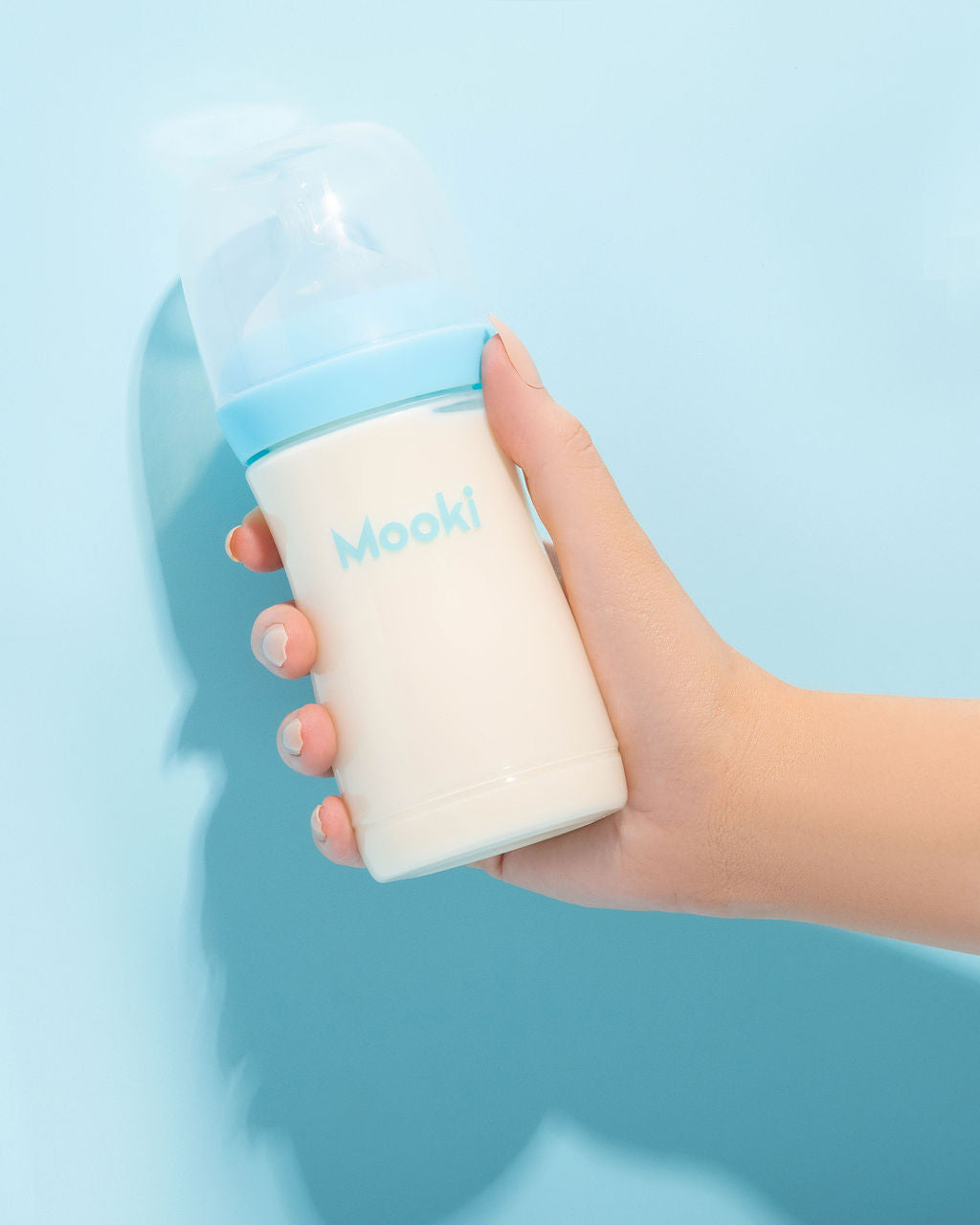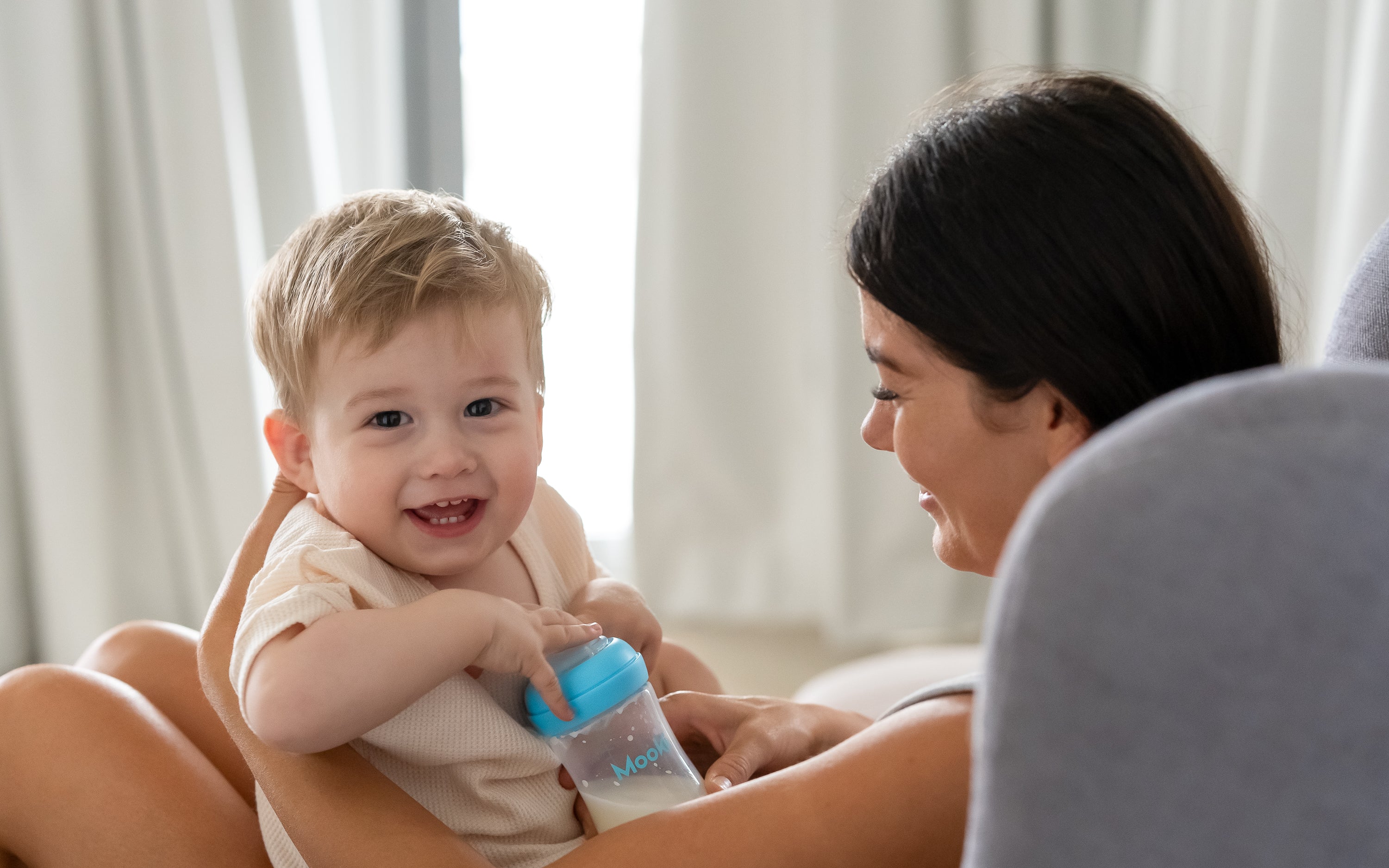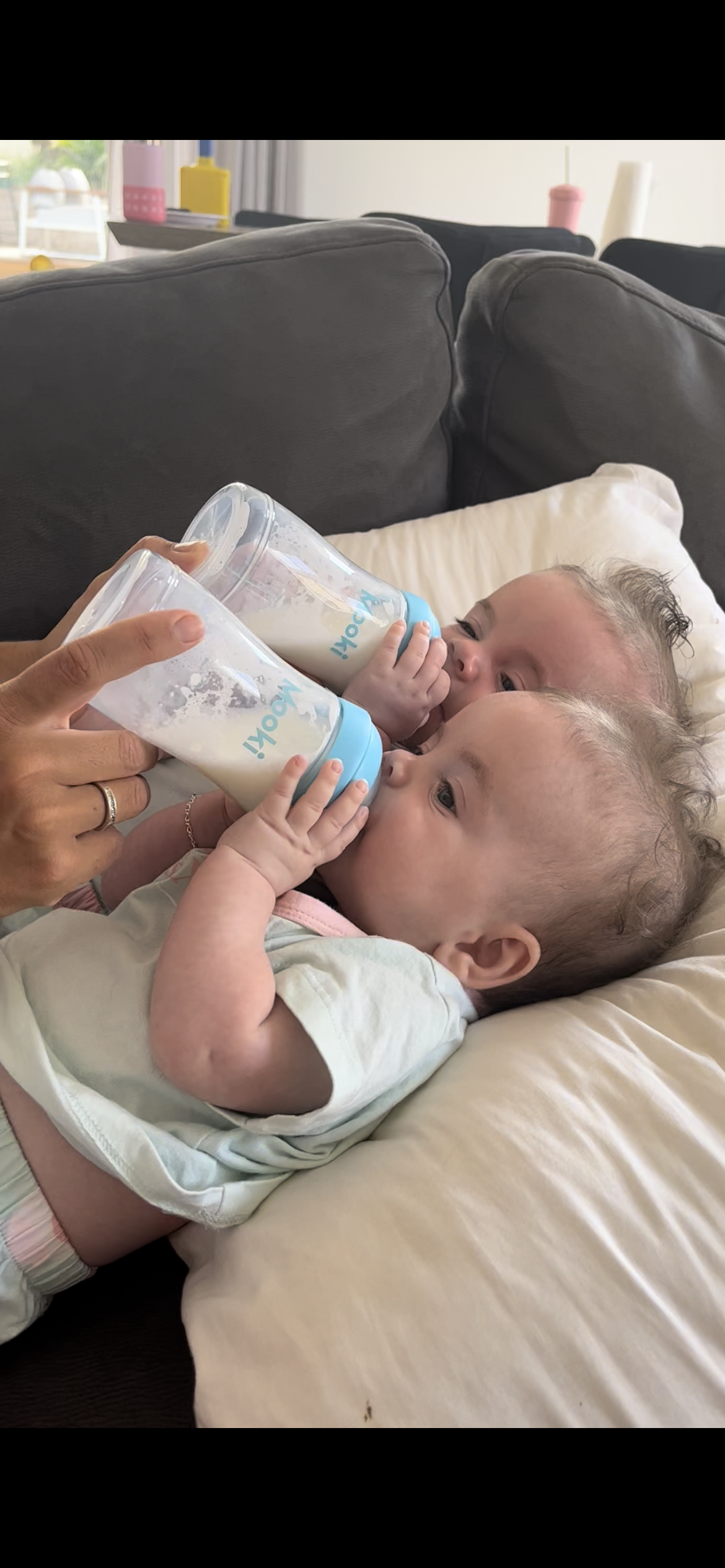Parenthood is an exciting journey filled with countless questions, and one of the most common ones that new parents often ask is, "Are baby bottles reusable?" As a mother, it's natural to want to make informed choices for your little one's well-being while also being mindful of your budget and environmental impact. In this blog post, we'll dive into the world of baby bottles to help you understand their reusability and how to make the best choices for your baby.
Understanding Baby Bottle Materials
Before we discuss reusability, let's take a look at the different materials baby bottles are made from:
-
Glass Bottles: Glass bottles are the most reusable option. They are durable, easy to clean, and can withstand high temperatures for sterilisation. They don't absorb odours or colours from liquids, making them an excellent choice for long-term use.
-
Plastic Bottles: Many baby bottles are made from BPA-free plastic. These bottles are generally reusable, but you should check the manufacturer's instructions to ensure they are safe for multiple uses. Some plastic bottles may wear out over time, so it's essential to inspect them regularly for signs of damage.
-
Silicone Bottles: Silicone bottles are a newer addition to the market. They are lightweight, durable, and often dishwasher safe, making them suitable for reuse. However, always follow the manufacturer's guidelines to determine if they are designed for multiple uses.
How to Make Baby Bottles Reusable
Now that we've established that baby bottles can be reusable, here are some tips on how to ensure they stay safe and functional for an extended period:
-
Proper Cleaning: Thoroughly clean baby bottles after each use. Use a bottle brush to reach all crevices, and make sure to wash nipples, rings, and caps as well. You can either hand wash or use a dishwasher, but always follow the manufacturer's recommendations for cleaning.
-
Sterilisation: Regularly sterilise baby bottles to eliminate harmful bacteria. You can do this by boiling them in water or using a bottle steriliser. However, not all materials can withstand high temperatures, so check the bottle's compatibility.
-
Inspect for Wear and Tear: Regularly inspect your baby bottles for signs of wear, such as cracks, scratches, or discolouration. If you notice any damage, it's best to replace the bottle to ensure your baby's safety.
-
Storage: Store baby bottles in a clean and dry place to prevent contamination. Use a dedicated storage area or a specialised bottle drying rack.
-
Check Manufacturer Guidelines: Always follow the manufacturer's instructions regarding the reusability of their bottles. Some may recommend replacing them after a certain period to maintain safety and functionality.
Eco-Friendly Options
If you're environmentally conscious and want to reduce waste, there are eco-friendly alternatives to traditional baby bottles:
-
Glass or Stainless Steel Bottles: Consider using glass or stainless steel bottles, which are highly durable and can be reused for a long time. They are also recyclable, making them an eco-friendly choice.
-
Bottle Accessories: Invest in bottle accessories like silicone sleeves or bottle covers to protect your bottles from damage, reducing the need for replacements.
-
Buy in Bulk: Purchasing bottle sets can reduce packaging waste and save you money in the long run. Look for eco-friendly packaging options when buying in bulk.
Conclusion
In answer to the question, "Are baby bottles reusable?" the short answer is yes, many baby bottles are designed for multiple uses. However, proper care, regular maintenance, and adherence to manufacturer guidelines are crucial to ensure their reusability while keeping your baby safe.
As a mother, you can make eco-conscious choices by opting for durable materials like glass or stainless steel, using eco-friendly bottle accessories, and buying in bulk with minimal packaging. By following these tips, you can confidently provide the best for your baby while being mindful of your budget and the environment. Parenthood is a journey of love and responsibility, and making informed choices for your baby's well-being is a wonderful part of that journey.
Read more

Introduction The journey of motherhood is filled with incredible moments, but it also presents its fair share of challenges. One of these challenges that many mothers find themselves questioning i...

When it comes to feeding your baby, especially if they have been diagnosed with a tongue tie, selecting the right baby bottle can make a significant difference in their comfort and feeding experie...

